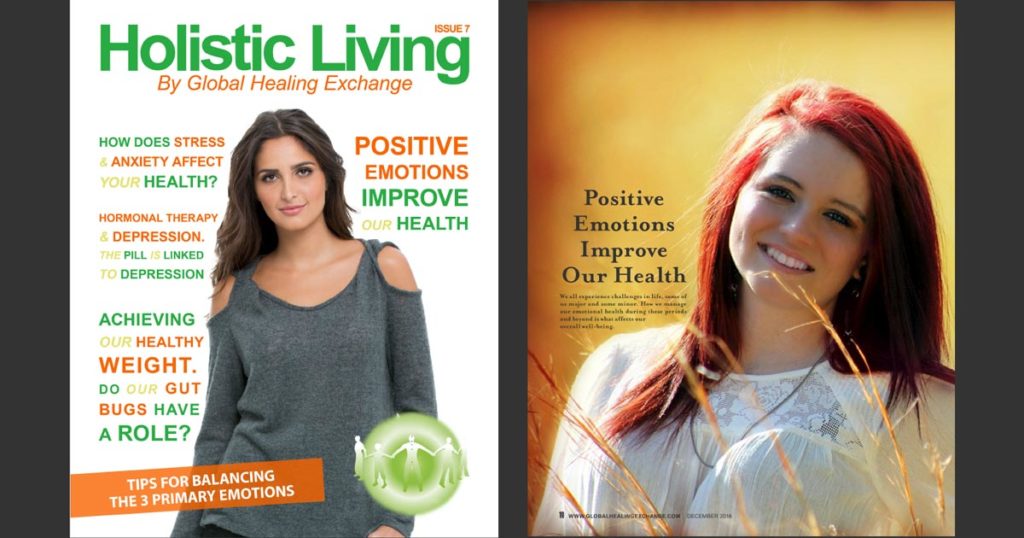Signup >>> FREE for LIFE Ruby Member
Get this and ALL issues FOREVER at NO COST!
Already a Member? Login to Access Full Editions

How Do Your Emotions Affect Your Body?
Theories about emotions stretch back to stories of Ancient Greece, Ancient China and into the 19th century.
Hippocrates was a Greek physician, and is still considered one of the most outstanding figures in the history of medicine. He believed certain moods, emotions and behaviours were caused by body fluids called ‘humors’.
In China, is was said that excessive emotion was believed to cause damage to Qi (life force, energy) which in turn, damages the vital organs.
The word emotion is derived from the Latin word which means “to move.” Emotion – (e)motion. Emotion actually means “energy in motion.”
In the 19th century Charles Darwin wrote a book The Expression of the Emotions in Man and Animals. He argued that emotions actually served a purpose for humans, in communication and also in aiding their survival.
We have known about emotions for such a long time, so my question is why is traditional medicine so fast to put you on a pill when you suffer from depression or anxiety? Wouldn’t it be better to see if you can work with the emotion first?
So What Is An Emotion?
Emotions, as defined by Damasio, are changes in both body and brain states in response to stimuli. Emotions are complex. According to some theories, they are a state of feeling that results in physical and psychological changes that influence our behaviour.
Physiological changes, (such as posture, breathing, sweating, muscle tension, facial expression, heart rate, endocrine activity etc.) occur in the body and are relayed to the brain where they are transformed into an emotion that tells the individual something about the stimulus that they have encountered.
Over time, emotions and their corresponding bodily changes, which are called “somatic markers”, become associated with particular situations and their past outcomes. So our body learns how to respond to a certain stimuli.
Emotions are brief in duration and consist of a coordinated set of responses, which may include verbal, physiological, behavioural, and neural mechanisms. So you see that our thoughts, behaviours and our physical body are interconnected.
I thought in this edition of Holistic Living Magazine it is very important to help people see the connection between our thoughts, emotion and our physical body (symptoms). When we realise emotion is connected to our body, we can start looking at getting healthy from a different angle. Rather than simply treating the symptoms, we can start to look at the cause.
We know there is so much more that modern medicine has yet to uncover; as stated at the beginning of this article there were many theories and these theories are now being confirmed by modern medicine.
Many of us have been conditioned to suppress our emotions. When you suppress your emotions you trap energy in your body, causing blockage and making your body feel at dis-ease and sometimes this blocked energy cause’s disease. The cause of many disease is trapped energy in your body.
My wish for you is for you to read this edition with an open mind and completely understand how you can change your emotional state, therefore change your health.






